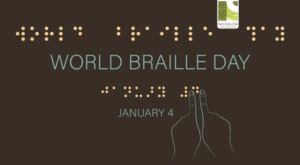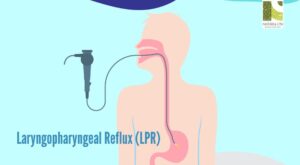Heartache, Lost Love, and Grief: It’s Not the Heart — It’s Mostly the Mind

We often say, “My heart is broken,” or “I’m heartbroken,” in the throes of pain, rejection, or grief. But science — and ancient wisdom — gently remind us that what we call “heartache” has far more to do with our brain than our beating heart. The sensations may center around the chest, but the real storm rages within the mind.
This blog explores the psychobiology of heartbreak, the neurology of loss, and offers gentle tools to understand and heal the emotional wounds that feel like they’re tearing us apart.
The Anatomy of Heartbreak: Why It Hurts So Much
When you experience the loss of a loved one, a relationship breakup, or emotional rejection, your body and mind undergo a genuine stress response:
- Cortisol, the stress hormone, floods your system.
- The anterior cingulate cortex, the same brain region activated by physical pain, lights up during emotional pain.
- Norepinephrine and adrenaline surge, tightening your chest, speeding up your pulse, and leaving you breathless — quite literally mimicking a heart attack.
This is why broken heart syndrome (also called Takotsubo cardiomyopathy) is real. But most of the time, the pain isn’t from a damaged heart muscle — it’s a psychosomatic echo of our mental trauma.
It’s the Mind That Remembers, Not the Heart
The brain is a master archivist of emotion. Specific brain areas, like the amygdala, encode emotional memories, particularly those related to fear, loss, or pain.
When we lose someone or something we love, our brain clings to the emotional patterns associated with that person or memory. The mind keeps replaying:
- What was said.
- What could’ve been different.
- What was lost.
This loop of emotional rumination prolongs grief and prevents healing.
Heartache ≠ Weakness — It’s a Natural Neurological Response
Grief is not a flaw. In fact, it is the mind’s way of processing a rupture in its emotional continuity. The brain doesn’t handle abrupt disconnection well, especially from people it has emotionally bonded with.
According to research from the University of California, Los Angeles (UCLA), social rejection activates the same neural pathways as physical pain. So, yes — when someone walks away, it hurts not just metaphorically, but biologically.
How to Heal: Mind-First Strategies to Ease Heartache
If heartbreak is in the mind, then healing too must begin there. Here are science-backed and soul-informed ways to begin the journey toward wholeness:
1. Acknowledge the Pain — Don’t Bury It
Suppression doesn’t work. In fact, denying your grief can prolong it. Allow yourself to:
- Cry.
- Write down your emotions.
- Speak to someone who listens without judgment.
This releases the emotional “charge” and allows your brain’s prefrontal cortex to regain balance over the hyperactive emotional centers.
2. Meditation & Breathwork
Meditative practices reduce amygdala activity, calm the nervous system, and foster acceptance. Simple techniques like:
- Mindful breathing (4-7-8 pattern)
- Loving-kindness meditation
can significantly reduce emotional intensity.
3. Move Your Body, Free Your Mind
Exercise increases endorphins, dopamine, and serotonin — chemicals that rebuild mood and emotional regulation. A regular walk, yoga session, or swim helps rewire the brain from loss to renewal.
4. Rebuild Your Emotional Identity
When relationships end, a part of your self-image breaks. Explore new hobbies, travel, or community work. This forms new emotional circuits that don’t rely on the lost person or past.
5. Talk to a Therapist or Grief Counselor
Modern psychology blends beautifully with traditional emotional healing. Cognitive Behavioral Therapy (CBT) and Acceptance Commitment Therapy (ACT) help you make sense of your pain, detach from self-blame, and accept the impermanence of all things.
Spiritual Lens: The Heart is a Metaphor for the Soul’s Echo
In spiritual traditions, the “heart” represents your soul’s emotional compass, not just a physical organ. Grief, from this perspective, is a sacred teacher. It breaks us open to light and transformation. The pain, though mind-based, deepens our capacity to feel, to forgive, and to awaken.
Pain is Inevitable, Suffering is Optional
As the Buddha said, “You can’t stop the waves, but you can learn to surf.”
Heartache, loss, and grief are part of being human. But with awareness, compassion, and intention, we can shift the pain from something that destroys us to something that transforms us.
So the next time your “heart” aches, remember — it’s your beautiful, brilliant mind calling for healing.
Listen to it. Care for it.
And gently walk it back home.





